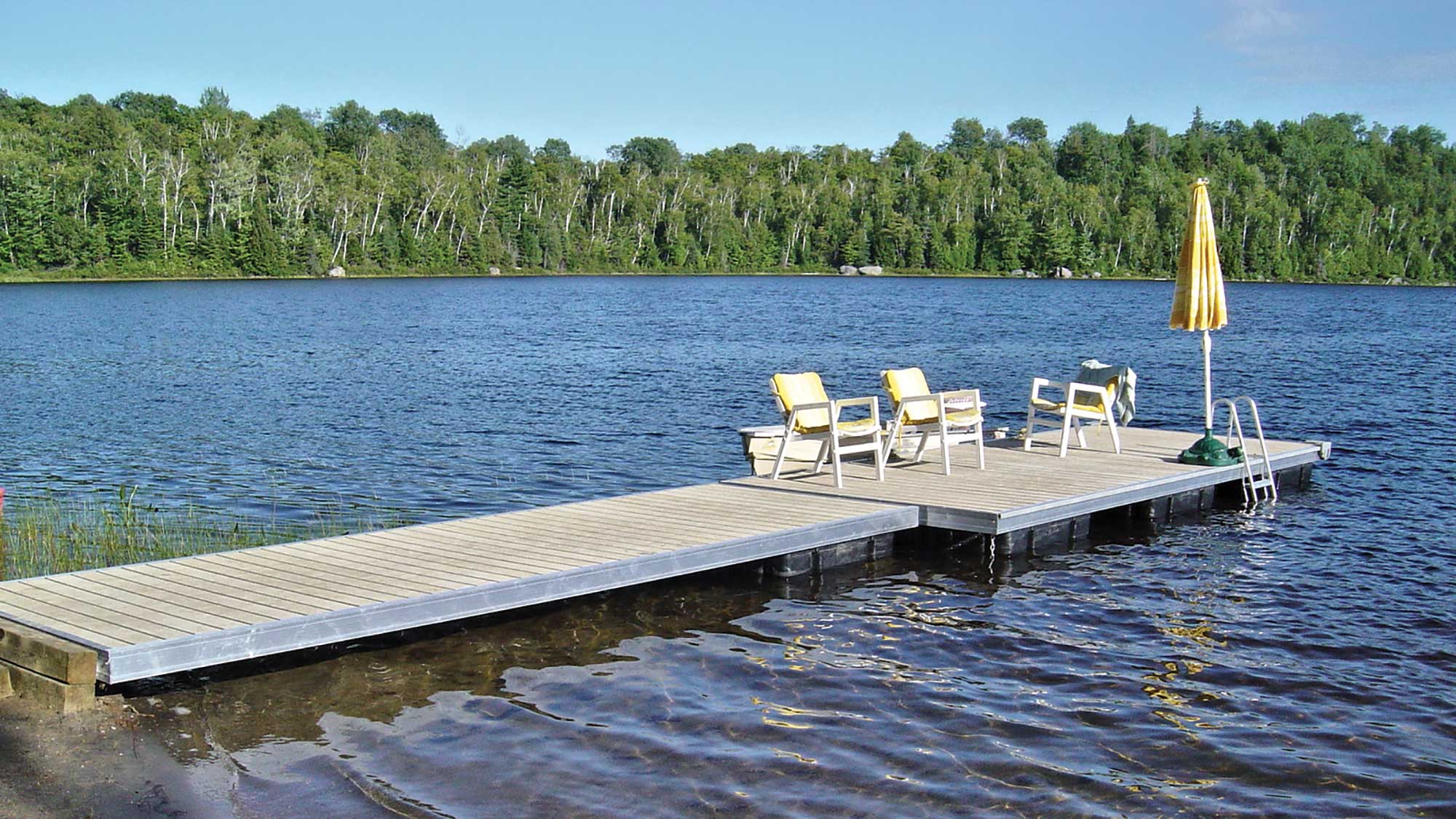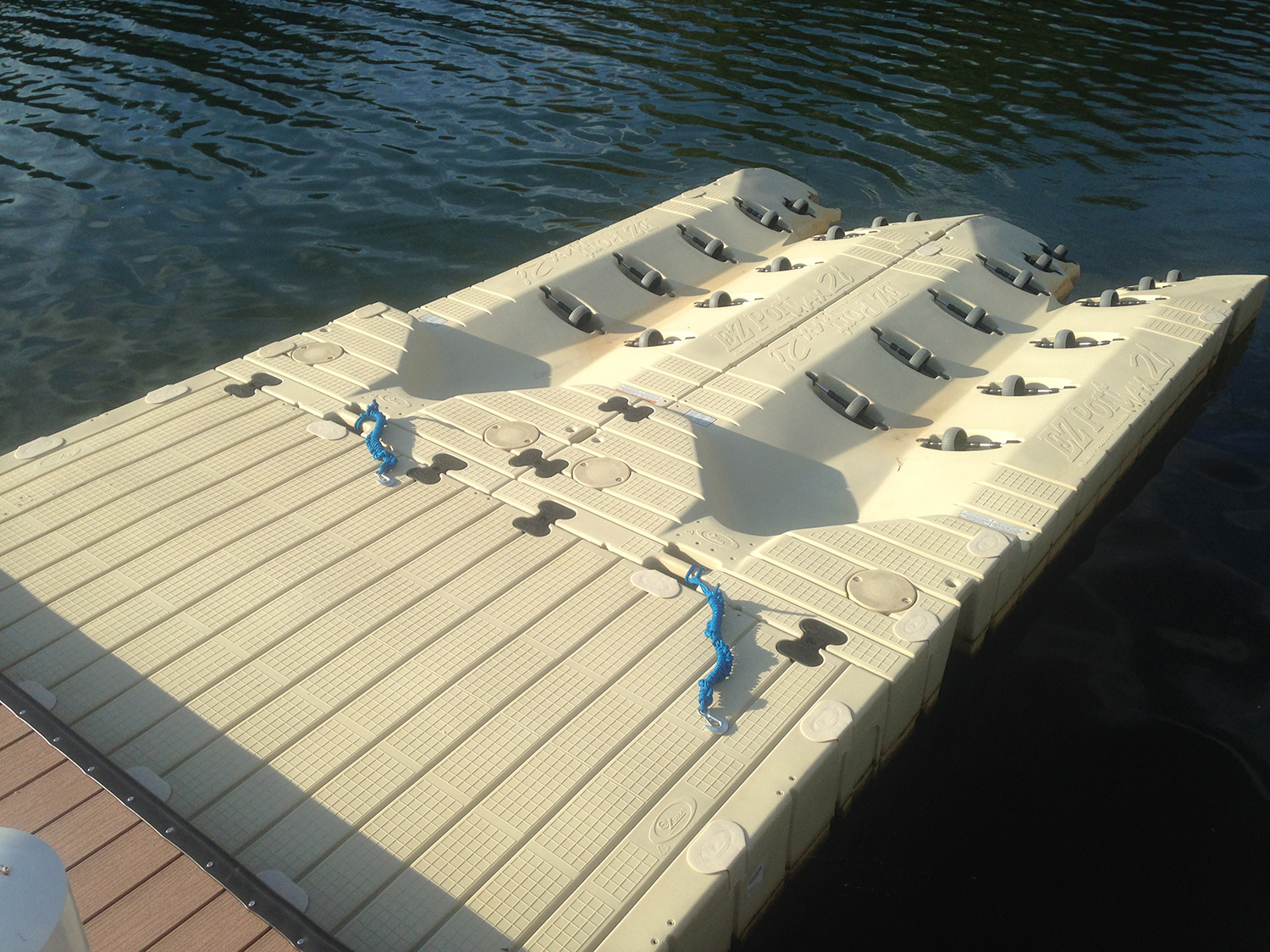Crafting Customized Solutions: Why a Floating Dock Builder is Vital for Special Demands
Crafting Customized Solutions: Why a Floating Dock Builder is Vital for Special Demands
Blog Article
Floating Docks: The Suitable Selection for Versatile Water Accessibility
Floating docks present a compelling service for a range of water gain access to requires, providing flexibility that transcends standard mooring alternatives. Their capacity to adjust to ever-changing water degrees while guaranteeing security and security makes them especially useful for both leisure and industrial applications. Moreover, the modular nature of floating docks facilitates modification, dealing with certain requirements. Nevertheless, the nuances of installment and upkeep, along with the variety of applications, necessitate a closer assessment to completely value their possible benefits and implications for river access methods.
Advantages of Floating Docks
Floating docks offer many benefits that enhance water access for various applications. Their ability to drop and increase with transforming water degrees makes them especially beneficial in environments with varying tides or seasonal variations. This versatility ensures that vessels can quickly anchor without issue for the water's deepness, offering a reputable system for entertainment, industrial, and industrial uses.
Furthermore, floating docks are often created from durable materials that stand up to rust, making them ideal for long-lasting use in marine environments. Their installation is usually less intrusive than traditional fixed docks, lowering the ecological effect and promoting quicker deployment (floating dock services). This adaptability permits less complicated relocation or reconfiguration according to individual demands or environmental adjustments
Safety and security is another key advantage; floating docks can supply secure accessibility for people getting off or boarding from boats and lower the risk of accidents associated with unsteady surfaces. Moreover, they can be made to suit a variety of accessories, such as cleats and fenders, improving performance. Generally, floating docks represent a reliable solution for boosting water accessibility throughout diverse fields while advertising security and ecological sustainability.

Kinds Of Floating Docks
Various sorts of floating docks accommodate different needs and environments, each developed with particular attributes to maximize performance. One of the most common kinds include modular docks, which contain interlacing areas that allow for very easy personalization and development. These docks are ideal for recreational usage, as they can be customized to fit various watercraft sizes and water problems.
Another prominent choice is the stationary floating dock, which stays anchored in position however drifts with transforming water levels. floating dock builder. This kind is specifically fit for locations with very little tidal fluctuations, offering steady accessibility for fishing or swimming. Furthermore, there are drive-on docks, which feature a sloped style that enables watercrafts to easily drive on and off, making them ideal for personal watercraft and smaller sized vessels
For commercial applications, sturdy floating docks are available, built from enhanced materials to hold up against substantial lots and rough aquatic atmospheres. Environmentally friendly floating docks utilize sustainable products and designs to minimize environmental impact, typically including functions like plants to why not try this out support regional wild animals. Recognizing the different types of floating docks ensures that individuals can pick the most appropriate solution for their particular requirements.
Setup Refine Review
An effective installation of floating docks requires mindful planning and attention to detail to ensure optimal efficiency and security. The preliminary step entails examining the site conditions, consisting of water depth, current, and prospective barriers. This assessment notifies the option of the proper dock materials and layout tailored to the certain environment.
Next, getting needed licenses is critical, as lots of jurisdictions have guidelines regarding building on water bodies. The setup can continue once authorizations are secured. Begin by preparing the foundation, which may entail anchoring systems or pilings customized to the dock type and regional problems.
Adhering to the foundation configuration, assemble the dock areas according to supplier specifications. Guarantee that all parts are firmly fastened and lined up to endure ecological tensions. Setting the dock in the assigned location, guaranteeing it is degree and stable.

Upkeep Tips and Finest Practices
After the setup process is full, recurring upkeep plays an important role in ensuring the long life and performance of floating docks. Normal evaluations should be performed to determine any indicators of damage, wear, or damage - floating dock builder. Look for any kind of loose installations, cracks, or splitting up in the dock sections, as these can endanger structural stability
Cleaning up the dock is necessary to remove particles, algae, and other build-up that can affect its look and security. Utilize a mild stress clean periodically to preserve sanitation without triggering damage to the surface area. In addition, using a protective sealer every couple of years can assist boost long life and withstand ecological wear.
Take notice of the mooring lines and supports, ensuring they are cost-free and secure from deterioration. Replace any type of abject elements promptly to prevent dangers. Seasonal adjustments may likewise be essential; during extreme climate condition, reinforcing the dock or repositioning can stop damages.
Applications for Floating Docks
Floating docks offer a wide range of applications, catering to both entertainment and business needs. In leisure settings, they offer smooth accessibility to rivers for tasks such look at these guys as boating, angling, and swimming. Their flexible nature permits for installment in differing water levels, making certain stable and safe access no matter tidal fluctuations.
Commercially, floating docks are crucial for marinas and waterfront businesses. They facilitate the docking of vessels, enabling efficient unloading and packing of products. Their modular design permits easy expansion or reconfiguration to accommodate transforming organization needs, making them excellent for that site watercraft services, excursion procedures, or fishing charters.
Additionally, floating docks are used in environmental applications such as aquatic study and environment repair. They can work as platforms for clinical research studies, monitoring water top quality, or carrying out wild animals surveys without disturbing sensitive ecological communities.
In industrial contexts, floating docks are used in building and construction tasks, giving access to hard-to-reach areas for equipment and personnel. Their convenience, toughness, and very little effect on the setting make them an ideal choice for a vast array of applications, enhancing both functionality and access in different water-based settings.
Final Thought
In final thought, floating docks stand for an optimal service for diverse water gain access to needs, owing to their versatility, durability, and modular style. Floating docks offer as a useful property for entertainment, commercial, and environmental projects, making sure reputable accessibility to waterways and promoting sustainable methods in water settings.
Floating docks present a compelling solution for a range of water gain access to needs, offering versatility that transcends traditional mooring options.Floating docks deal many advantages that improve water access for various applications. In general, floating docks stand for an efficient service for improving water access throughout diverse sectors while promoting safety and security and ecological sustainability.
Another preferred alternative is the stationary floating dock, which continues to be secured in location but drifts with transforming water levels.In conclusion, floating docks represent an optimal service for diverse water accessibility requires, owing to their versatility, durability, and modular design.
Report this page